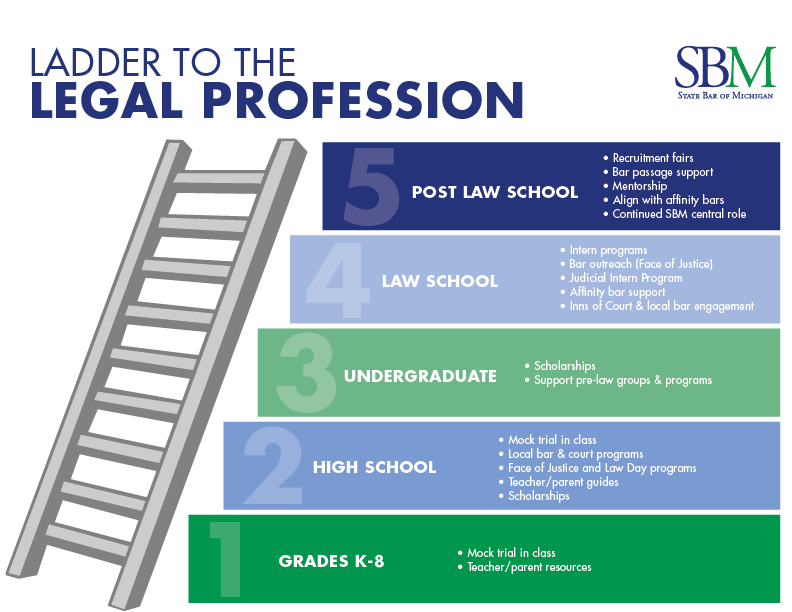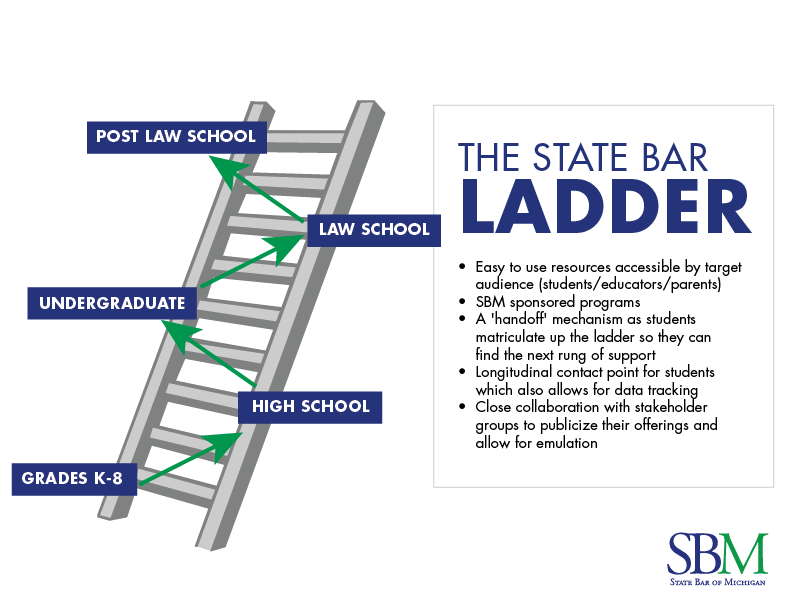
I’ll be honest with you. I’ve had every advantage. I was never hungry, unhoused, abused, or without love. I am male, white, and without a disability. My parents stressed education, could afford to live in a city with good public schools and send me to a SAT preparation course and college, and the government was there for law school tuition. I didn’t have to balance work while trying to study or pass the bar. I was hired by an excellent firm and given every resource to try and succeed. I’ve had mentors, role models, and a lot of grace given to me every step of the way. And let’s not forget family support, incredible friends and colleagues, and a tragedy-free life which has (among other things) allowed me to focus on my career and family. I do not suffer from mental disease, addiction, emotional issues, or major health obstacles. I face no discrimination of any sort anywhere I go. And I’ve had enough money to help smooth over the rougher edges of life, open doors, and help my children succeed.
Who amongst us would not be grateful for all of that? Surely those with far less are happy and successful, but one cannot simply ignore these tremendous advantages. ‘Tis the season for gratitude, and yet I’m mindful that for those who have much, magnanimity is cheap.
But this is not about generosity. It’s about recognition and action.
Counting one’s own blessings forces two reckonings. First, one has to be honest with oneself. This isn’t always easy. Ego often intervenes and tells you that what you have earned wasn’t luck, or grace, or really had all that much to do with the help of others. It also requires awareness not only of oneself, but of the wider world. It’s human nature to take things for granted — such as how much their skin color, upbringing, or peer groups (to name only a few factors) contributes to their success — because facing such truths feels like giving up agency in a precarious world and comes with the recognition that those who do not have these advantages — through no fault of their own — have a much harder journey.
This leads to the second reckoning of honestly taking stock of one’s advantages: action. Here, I don’t mean charity work, admirable though it is. I mean changing the system, or at least changing the outcome for someone in it. If we believe that all people are created equal and that all deserve a chance to prove themselves in this meritocracy, then we must necessarily believe that anything which tilts the table against some portion of the population is fundamentally unfair. Solving the world’s ills is not the job of your bar association. But improving the functioning of the courts and taking action to increase the availability of legal services to society — that is our bread and butter.
Of all places, everyone should have an equal shot at making it in the law. If justice is our name, then equal opportunity must be our game. But it doesn’t work that way. Despite efforts to improve, diversity in the legal profession lags behind the overall U.S. population and other professions. For example, just 6% of lawyers are Hispanic and 5% of lawyers are Black, while representing 19% and 13% of the U.S. population, respectively.1 Michigan has a similar disparity.2 Much has been written as to why the improvement of legal services and the functioning of our courts turns upon the very font of our legitimacy — the people, all people — both having access to and feeling welcome within the system. This includes, among a great many other things, inclusion as lawyers and judges within the justice system.3
One focus of the legal profession for many years has been pipeline programs. These programs recognize the truths noted above and attempt to create a supportive pathway for individuals historically disadvantaged, marginalized, and underrepresented to join the legal profession and succeed. The programs take many forms. The SBM itself hosts the Face of Justice program4 as an important part of this tableau, and various bar associations, colleges, law schools, and courts sponsor similar efforts.5
For several years, I’ve been working with SBM Director of Diversity Greg Conyers, our executive director, and various other stakeholders to figure out what more we can do in this space. We convened a “summit” held in June 2023 and attended by more than 40 individuals representing interests from across the state. We heard about what works, what doesn’t, and how the bar can help. We reconvened in November 2023 and in between, continued our collaboration, listening, and learning. The SBM’s Diversity and Inclusion Advisory Committee has been actively involved, and my friend, partner, and fellow commissioner, Aaron Burrell, has agreed to take a leadership role.
Over time, I’ve decided that a ladder is a better metaphor than a pipeline for what the SBM can do. In a perfect world, a cohesive system would accompany a student from elementary school through law school graduation and beyond, aware of each person’s unique journey, and offering a host of support services. But that is not realistic. Instead, we have a number of programs offered by multiple groups and entities with little, if any, longitudinality (that is, staying connected over time) or data collection as to what really works. A ladder is a better metaphor because at each rung there are offerings. One might capture some of the current pipeline programs as follows: What a ladder also has are legs, which connect the rungs and give the apparatus structure and cohesion. The ladder metaphor is more apt because it highlights where the SBM can really shine: by connecting all the work of others while providing the climber an easy way to find the next rung and keep ascending. The Bar can be a convener amongst various groups as a centralized way to share and colloborate and the sponsor of signature programs which supplement the rich offerings provided by others. My vision for the SBM ladder is represented below.

As we move through 2024, and for many years into the future, we will stay focused on these issues. Someday, someone will look back — maybe in this space — and reflect upon the advantages they had to get to where they are in life. Hopefully, the SBM will be amongst the advantages that person had to ascend to their success. For that opportunity, I am truly grateful.
